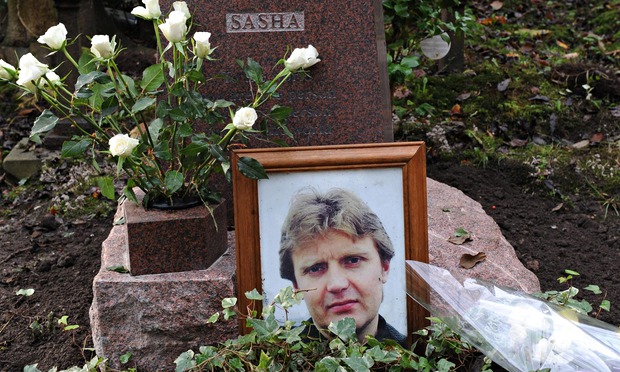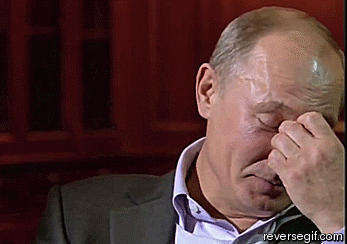In the 1950 noir D.O.A., hopelessly poisoned California accountant Frank Bigelow races to name his murderer before the end of his life and the end of the credits. In the B-movie’s chilling contrivance, murder is a lesser horror than the death of truth. It was the potential paucity of resolution that unnerved the most.
In Vladimir Putin’s Russia, murdered bodies and truth rest uneasily in adjoining plots. In 2006, former FSB officer and dissident Alexander Litvinenko became a real-life Bigelow after downing a drink dosed with polonium-210 at the Millennium Hotel in London. His investigation of the Kremlin as a kleptocracy would abruptly come to a close. He did manage, more or less, to solve his own killing before the radioactive chemical ended him, but the truth hardly mattered. The mafia state remained in place and has since only grown worse. His widow’s crusade to achieve a measure of justice led this year to the assassination being linked directly to Putin, but at this point, the machinations of his mafia state are met if not with shrugs then with knowing, silent nods.
In Peter Pomerantsev’s LRB review of Luke Harding’s new book, A Very Expensive Poison, British PM David Cameron is charged with obfuscating the case in order to not upset London’s rise to world’s foremost financial capital. The opening:
As he lay dying Alexander Litvinenko solved his own murder and foresaw the future. A professional detective on his last case, with himself as the victim, he worked out that he had been poisoned in the Pine Bar of the Millennium Hotel in Mayfair, by another former KGB detective, Andrei Lugovoi. He had thought they were partners, investigating the connections between Putin’s Kremlin, organised crime and money laundering in Europe but, he now realised, Lugovoi was still taking orders from the people they were investigating. As Litvinenko’s hair came out in clumps, as he found it increasingly hard to open his mouth to talk, as he became yellow and shrivelled, he cursed himself for letting his guard down: he had assumed he was safe after receiving asylum and citizenship in the UK. But solving the crime, Litvinenko understood, was only the beginning. Would the British government risk undermining its financial interests by investigating his death properly?
‘Of course I understand the West wants to get gas and oil from Russia,’ he told inspectors from Scotland Yard who interviewed him in hospital, ‘but one shouldn’t be involved in political activity if one doesn’t have political beliefs. And beliefs can’t be traded for gas and oil. Because when a businessman is trading he’s trading with his money but when a politician is trading he is trading with the sovereignty of his country and the future of his children.’ The transcripts of Litvinenko’s interviews were released last year; he was clearly trying hard to win the police over to his cause. He was good at speeches. ‘In case there is from the top administrative pressure for political reasons,’ he said, ‘be firm … bring this case to the end.’ The men from Scotland Yard were impressed by his faith in them: ‘Last month I was granted British citizenship and I very much love this country. Possibly I may die, but I will die as a free person, and my son and wife are free people. And Britain is a great country.’
Litvinenko died four days later, on 23 November 2006. Six hours before it happened Scotland Yard got a phone call from the Atomic Weapons Establishment at Aldermaston. Their tests showed he was ‘terribly contaminated’ with polonium, a metal four hundred times more radioactive than uranium and which can only be manufactured in a nuclear plant. It had very nearly been the perfect assassination: polonium isn’t picked up by Geiger counters and doctors had followed many false leads – ricin? thallium? – in trying to identify the mystery poison. When polonium was first suggested by urine tests it was dismissed as an anomaly caused by the plastic container.But now that polonium had been confirmed it was a cinch for investigators, dressed in radiation-proof suits, to follow the radioactive trail, with equipment capable of detecting alpha radiation, through Mayfair, Heathrow, and on the plane Lugovoi had flown in on from Moscow.


